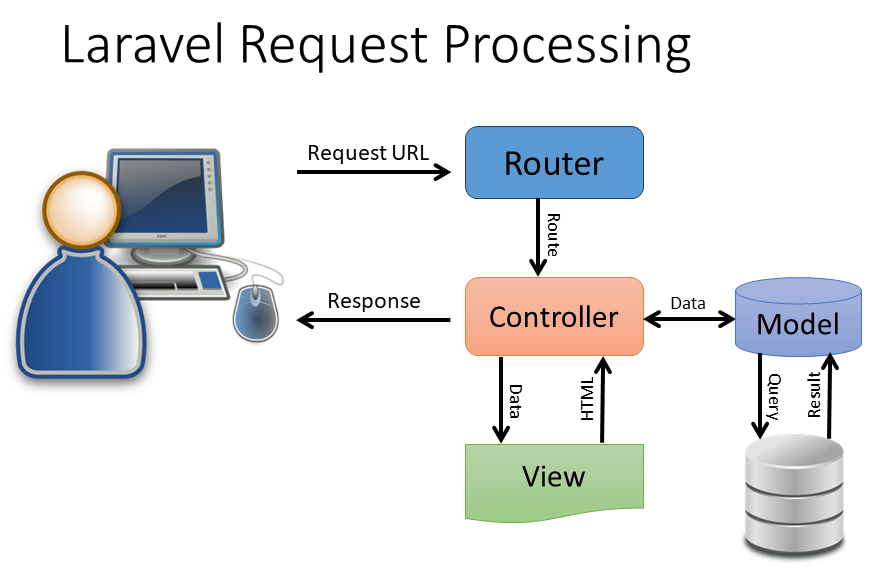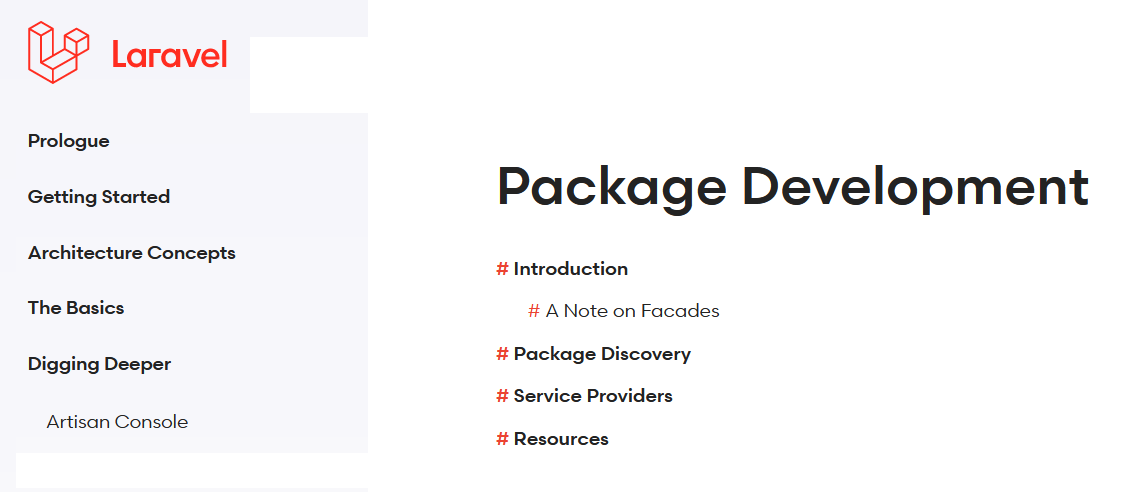📖 Introduction to Laravel
Laravel is a robust and sophisticated PHP framework designed for the development of web applications following the model-view-controller (MVC) architectural pattern. Since its initial release in 2011 by Taylor Otwell, Laravel has evolved to become one of the most popular and widely used PHP frameworks in the world. It is renowned for its elegant syntax, feature-rich capabilities, and a thriving ecosystem.

MVC OOP Architecture
At its core, Laravel simplifies common web development tasks such as routing, authentication, sessions, and caching, making it easier for developers to build complex applications with maintainable and scalable code. Laravel's expressive and fluent API enhances productivity and allows developers to focus on creating feature-rich applications without getting bogged down by mundane, repetitive coding tasks.
<?php
public function login(Request $request) {
$formFields = $request->validate([
'loginusername' => 'required',
'loginpassword' =>'required'
]);
if (auth()->attempt(['username' => $formFields['loginusername'], 'password' => $formFields['loginpassword']])) {
$request->session()->regenerate();
return redirect('/')->with('success', 'You are logged in.');
} else {
return redirect('/')->with('failure', 'Invalid login.');
}
}Eloquent ORM
One of the standout features of Laravel is Eloquent ORM, an advanced object-relational mapper that provides simple ActiveRecord implementations for database interactions. This makes data handling tasks straightforward and more intuitive. Laravel's robust migration system supports version control for your database schemas, helping teams to develop and deploy applications without database discrepancies.
<?php
Schema::create('users', function (Blueprint $table) {
$table->id();
$table->string('username')->unique();
$table->string('avatar')->nullable();
$table->string('email')->unique();
$table->timestamp('email_verified_at')->nullable();
$table->string('password');
$table->rememberToken();
$table->timestamps();
});Laravel Package Development
Laravel is also modular, allowing developers to use pre-built or custom-built modules to enhance the application's capabilities without altering its core structure. Additionally, Laravel's extensive package system, which includes everything from invoicing to authentication, allows for extensive extension and customization of applications. Learn more about Laravel package development.

Laravel Documentation
Comprehensive documentation and a supportive community further bolster Laravel's position as a premier choice for developing modern web applications. Whether building a small website or a complex enterprise-level application, Laravel equips developers with the tools necessary to deliver cutting-edge solutions efficiently. Learn more about Laravel at the Laravel Docs page.
